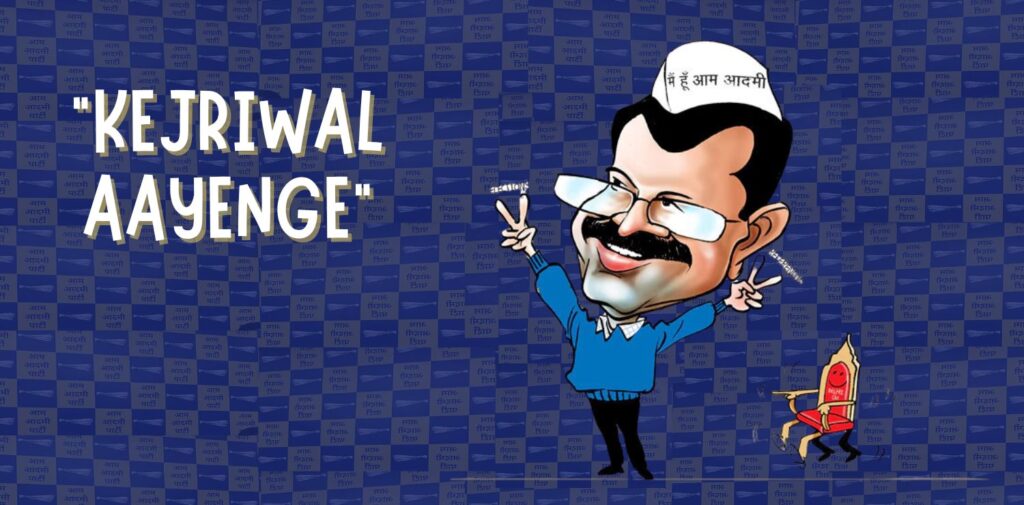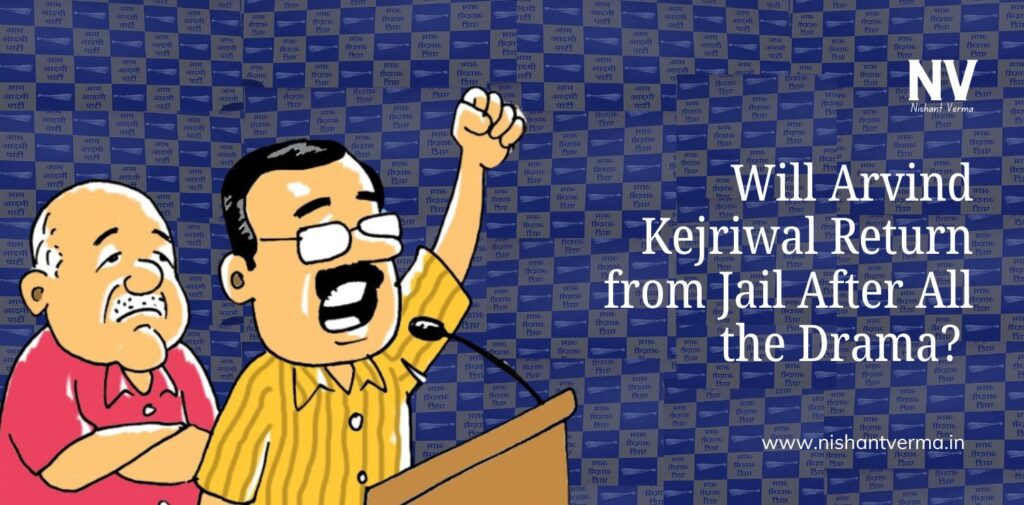In a flashy twist of political theatrics, Arvind Kejriwal, Delhi’s Chief Minister, has launched the “Kejriwal Aayenge” campaign. This announcement might seem like a fresh breeze in the political landscape, but under this veil of bravado, there creeps a disquieting reality that every voter should confront.
Kejriwal’s campaign, plastered across billboards and social media platforms, aims to paint him as the savior of Delhi, the beacon of hope in a sea of corruption and mismanagement. But let’s peel away the layers of this campaign and examine the truth behind the curtain. The man who is now presenting himself as Delhi’s knight in shining armor is the same individual mired in legal and ethical controversies.
First and foremost, Kejriwal’s campaign comes at a time when he faces serious charges and allegations. While Kejriwal is busy projecting himself as the messiah, the shadow of legal battles looms over him. Recently, he was in jail, grappling with accusations that paint a starkly different picture of him from the clean, corruption-free leader he claims to be. These charges are not just minor discrepancies; they are significant enough to have him in the legal crosshairs, impacting his ability to govern effectively. And yet, here he is, gallivanting through the streets with grand promises, as if nothing is amiss.
The audacity of this campaign, especially when seen through the lens of his legal troubles, is nothing short of astonishing. It’s as though Kejriwal and his party, Aam Aadmi Party (AAP), are daring the public to ignore the glaring inconsistencies in his narrative. They are not just playing with words; they are leveraging a classic political tactic of distraction. By focusing the public’s attention on an idealized version of Kejriwal, they hope to obscure the darker aspects of his tenure and his current predicaments.
Let’s talk about the wordplay and the symbolism being used here. The “Kejriwal Aayenge” campaign is more than just a catchy slogan; it’s a calculated move to forge an emotional connection with the electorate. This isn’t merely about promising better governance; it’s about presenting Kejriwal as a victim of political vendetta, someone who is standing tall against the mighty forces trying to bring him down. But this narrative conveniently sidesteps a critical reality check: the very accusations that have landed him in hot water are not merely fabrications but are grounded in serious claims.
Moreover, Kejriwal’s campaign does a masterful job of redirecting attention from the party’s numerous failings. AAP, under Kejriwal’s leadership, has been criticized for its governance style, which often seems more concerned with publicity stunts and media coverage than with actual administrative efficiency. While the party has certainly had its share of achievements, such as improvements in education and healthcare, these should not blind voters to the systemic issues and controversies that have plagued their administration.

This campaign also brings to mind a certain level of hypocrisy. Kejriwal and his party have positioned themselves as the torchbearers of honesty and transparency, yet the repeated scandals and legal issues paint a different picture. How can a party that claims to fight against corruption be so closely associated with its very essence? The disconnect between their promises and their performance is so stark that it almost feels like a theatrical performance designed to mislead.
Furthermore, the timing of this campaign is no accident. With the 2025 elections on the horizon, Kejriwal is making a desperate bid to shore up support and reassert his place in the political arena. This is not just about showcasing his achievements; it’s about ensuring that the electorate forgets the controversies and scandals that have been a recurring theme during his tenure. It’s a classic case of putting up a façade to mask the underlying issues.
In this narrative, Kejriwal is being portrayed as a beleaguered hero, but this characterization is a distortion of reality. The real story is one of a leader who is struggling to reconcile his public persona with the legal and ethical challenges he faces. The “Kejriwal Aayenge” campaign might sound promising, but it is crucial for voters to look beyond the glittering promises and scrutinize the deeper issues at play.
As the campaign continues, it will be important for voters to ask themselves some tough questions. Are they being swayed by the charm and rhetoric of a leader who is, at best, embroiled in serious legal issues and, at worst, using these controversies to generate sympathy and support? Is this campaign an attempt to deflect attention from the real concerns and shortcomings of his administration?
In the end, the “Kejriwal Aayenge” campaign might just be a clever piece of political theater, designed to captivate and convince rather than to address the hard truths. The real challenge for voters is to see through this spectacle and make informed decisions based on a clear understanding of the facts. Arvind Kejriwal’s campaign might be bold and flashy, but it is the underlying reality that should command the greatest attention.




